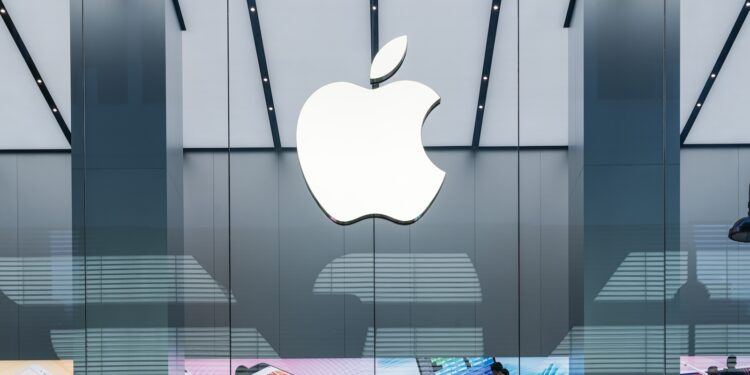Apple held an internal general meeting to clarify the current situation surrounding artificial intelligence. Just one day after the release of its financial results, CEO Tim Cook delivered an hour-long speech at the Steve Jobs Theater. The goal was to address uncertainty within the company, build support for the company's current direction, and clarify its strategic plan for AI. The speech came at a time when Apple is being criticized both internally and externally for its slow response to AI development. According to Bloomberg, the meeting was viewed as a rare but clear statement of direction.
Apple has so far been remarkably reserved in its comments on the AI revolution. While other tech companies are already making great strides and launching products with generative AI, Apple has made little more than a few announcements. Recent turmoil within the company—including high-profile departures, restructuring, and unclear responsibilities—has reinforced this impression. The company-wide meeting with Tim Cook should provide more clarity on this.
Tim Cook's central message
In his speech, Tim Cook described artificial intelligence as one of the greatest technological revolutions—comparable to the internet, smartphones, cloud computing, and apps. The key message:
Apple has to do this. Apple will do this. This is our opportunity, so to speak.
At the same time, he assured that Apple would make the necessary investments. He pointed out that Apple has historically rarely been the first, but has regularly redefined entire product categories – as with the Mac, iPhone, iPad, and iPod. They will also approach AI along these lines.
Internal challenges and strategic change of course
Internally, Apple is currently facing structural challenges. The Siri team was reportedly surprised by the fact that Apple is no longer relying exclusively on in-house development, but is instead entering into partnerships with OpenAI and Anthropic. The decision was apparently made relatively quickly and without early consultation with all affected teams. At the same time, Apple is discussing a possible acquisition of the AI search company Perplexity. These talks were already hinted at the previous day during the analyst conference call on the quarterly results.
Craig Federighi on technical setbacks
Craig Federighi, responsible for software development, also spoke on stage and discussed the technical background. Originally, a new version of Siri was intended to combine two systems: traditional command processing and an AI model based on large-scale language models. However, this hybrid architecture failed to deliver the quality Apple considered market-ready. The approach was therefore abandoned, leading to delays throughout the entire Siri project.
Skilled labor shortage and competition from meta
Another problem for Apple is the loss of talent. Meta's new AI team, Superintelligence Labs, in particular, is attracting former Apple employees. The meeting can therefore also be seen as an attempt to strengthen internal cohesion and prevent exodus. Cook emphasized that Apple is committed to remaining a leader in data privacy, security, and user-friendliness – including in the field of AI.
Regulatory framework in view
Tim Cook also addressed the political and regulatory situation. Tech companies are under scrutiny worldwide, especially when it comes to artificial intelligence. Apple will continue to work to ensure that regulations are in the best interests of users—that is, without compromising their privacy, security, or user experience.
Strategic signaling effect of the assembly
The nature of the meeting was unusual for Apple. Instead of small, town-hall-style discussions, the company opted for a large, central event with a clear message. The signal was clear: Apple wants to set its own course and regain control over its AI strategy. At the same time, it aims to strengthen internal trust and defuse external criticism.
Apple draws conclusions from the AI lag
Apple is under pressure when it comes to AI. The company has missed important developments and is now forced to quickly make up ground. Tim Cook's speech demonstrates that a shift in strategy has taken place internally: away from internal solo efforts and toward partnerships and targeted acquisitions. At the same time, there is a clear willingness to invest in the necessary infrastructure and human resources. Whether this path will be sufficient to keep up in the global AI race remains to be seen – but for the first time, Apple is clearly demonstrating that it is accepting the challenge. (Image: Shutterstock / Art Silpakorn)
- Apple warns of risks in billion-dollar deal with Google
- Apple Vision Pro: Weak numbers, strong future plans
- Tim Cook is the longest-serving Apple CEO
- Apple sells three billionth iPhone since 2007
- Apple restructures AI strategy: Major acquisitions possible
- Apple faces record tariff costs in Q4
- Tim Cook: Apple is making progress with personalized Siri
- Apple expands AI division – iPhone remains growth driver
- Apple Q3/2025: Profit, revenue and services on track for record results





